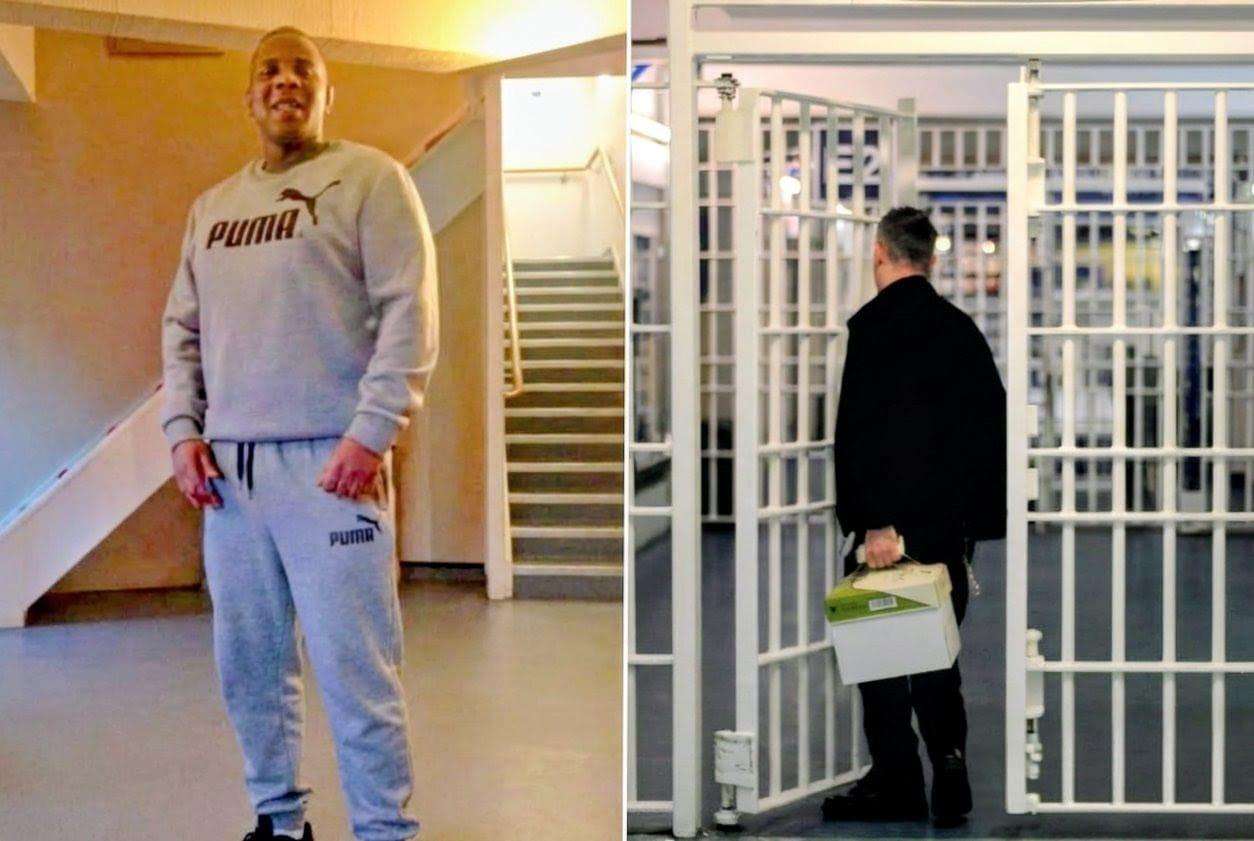Though Bangladesh is working to increase engagement with East European countries through export of goods and manpower, as of now the engagement with that region is still low compared to the expectation of the stakeholders concerned, sources said.
Bangladesh exports are mainly consented to some west European Union countries like Germany, France, Italy, Spain and UK while export to rest of the European countries are less compared to expectations of the Bangladesh government, sources in the Export Promotion Bureau (EPB).
According to statistics of the Export Promotion Bureau (EPB), Bangladesh exported goods worth 51,542.70 million US dollars to different counties during July-May period of the 2023-24, over 50 per cent entered the EU markets. Out of total exports to EU countries, Bangladesh exported the maximum portion to the west European Union countries.
As population in the European Union including East European countries are decreasing, the Bangladesh government took up a project named ‘Talent Partnership’ with the Delegation of the European Union (EU) to Bangladesh and the International Labour Organization (ILO) to help migrate 3,000 Bangladeshis to European countries, sources in Bureau of Manpower, Employment and Training (BMET).
Former Secretary General of Bangladesh Association of International Recruiting Agencies (BAIRA) and incumbent Director of East West Human Resource Center Ltd. Ali Haider Chowdhury while talking to this correspondent said that the Bangladesh government should engage with EU countries to open consular service in Dhaka to speed up the migration process.
Despite demand in the labour market in EU countries, Bangladesh can’t send required workers to EU countries as countries concerned have no consumer service in Bangladesh.
Ali Haider Chowdhury said that the Bangladesh government should engage talks with EU countries to launch consular service in Dhaka as intending Bangladeshi workers need to go to New Delhi to get a Schengen visa. He said even getting an Indian visa is time consuming and sometimes the visa requests are rejected by the High Commission of India. He said even after getting an Indian visa, an intending visa seeker has to stay one month in New Delhi to process his her EU visa.
While talking to this correspondent, a high official of the Ministry of Foreign Affairs said that the government of Bangladesh can construct high-rise condominiums at Gulshan and offer to East European countries to set up their mission or consular services.
As running a mission in Bangladesh is highly expensive, no east European country has not opened a mission in Dhaka.
Source said that the eastern EU member states like Bulgaria, Croatia, the Czech Republic, Estonia, Latvia, Lithuania, Hungary, Poland, Romania, Slovakia and Slovenia have no mission or consular service in Dhaka.
A Rajdhani Unnayan Kartripakkha (RAJUK) official while talking to this correspondent said that the Bangladesh government still has some land properties at Gulshan that it can offer to some European countries to set up missions or consular services. In recent times, the Embassy of Italy handed the possession of the Gulshan land property to the Bangladesh government.
In Dhaka (At Baridhara), Germany and France have shared the same building to run their mission. A Mofa official said some European countries including eastern EU member states will be interested to set up missions or consular services if land properties or condominiums are offered to them, said a Mofa official.
The house rent at Gulshan and Baridhara is highly expensive and lifestyle is also as expensive as in European countries, said a Bangladesh diplomat who works in an EU country.
Meanwhile, Bangladesh has some missions in some East European countries like Warsaw in Poland, Bucharest in Romania, Moscow in Russian Federation, Tashkent in Uzbekistan and Ankara in Republic of Turkey.
Meanwhile, the Delegation of the European Union (EU) to Bangladesh and the International Labour Organization (ILO) on July 8, 2024 signed an agreement for the Talent Partnership Project, which will facilitate safe and regular migration of skilled workers from Bangladesh to EU Member States to help meet growing skilled labour shortages in EU Member States.
The growth model of the eastern EU member states (Bulgaria, Croatia, the Czech Republic, Estonia, Latvia, Lithuania, Hungary, Poland, Romania, Slovakia and Slovenia) will be heavily affected in the coming years by the region’s population trends. Some of these countries, such as Latvia and Bulgaria, are among the worst globally in terms of population decline. Declining populations in this region will drag on countries’ economic growth potential and will increasingly force governments to address labour shortages, through policies such as increases in pension ages and relaxation of immigration rules. Declining populations will place eastern EU member states at a stark disadvantage compared with other emerging markets and will be the single largest drag on long-term growth.
The Delegation of the European Union (EU) to Bangladesh and the International Labour Organization (ILO) on July 8, 2024 signed an agreement for the Talent Partnership Project, which will facilitate safe and regular migration of skilled workers from Bangladesh to EU Member States to help meet growing skilled labour shortages in EU Member States.
The Talent Partnership programme is an initiative referenced under the European Union’s New Pact on Migration and Asylum, aiming to match skilled labour supply in Third Countries with skilled labour demand in EU Member States while ensuring safe and regular mobility pathways for skilled migrant workers in compliance with international human rights and labour rights. In this ways the Talent Partnership programme aims to develop a mutually beneficial relationship between Bangladesh and EU Member States on skilled labour migration.
Neeran Ramjuthan, Office in Charge of the ILO in Bangladesh, said “The Talent Partnership aims to contribute to matching and balancing skilled labour demand and supply, supporting economic growth, and enhancing the safety and recognition of skilled migrant workers, while fostering collaborative opportunities between EU Member States and Bangladesh for mutual benefit and in accordance with international labour standards.”
Under the Talent Partnership Project, students, graduates and skilled workers from Bangladesh will be able to access opportunities to live, work and further develop their skills in various European Member States. The Talent Partnership Project will also facilitate access to opportunities for preparatory vocational and other required training in Bangladesh. The project will furthermore facilitate access to reintegration support for migrants returning to their countries of origin.
Charles Whiteley, the then Ambassador and Head of Delegation of the European Union to Bangladesh said “Skilled labour migration is crucial for future economic growth in Europe, given the significant skilled labour deficits in a widening range of occupational sectors. This Talent Partnership programme with Bangladesh will furthermore facilitate regular and safe mobility mobility pathways for mutual benefit of Bangladesh and involved EU Member States”.
The Talent Partnership Project in Bangladesh builds upon the achievements and results by the ILO's Skills 21 project, funded by the European Union, and the project will facilitate the training, assessment and a safe and regular mobility pathway for 3,000 skilled migrant workers from Bangladesh to sector occupations in EU Member States.
Acting Foreign Secretary Dr Md Nazrul Islam noted that “Bangladesh’s demographic dividend, skilled workforce and long tradition of overseas employments means that Bangladesh is well suited to collaborate with EU Member States on skilled labour supply in a range of occupational sectors, incl. ICT, nursing and caregiving, agriculture, hospitality and tourism, construction, transport and logistics. We are therefore pleased with this welcome EU initiative for mutual long-term benefit”.
A wide range of Senior Officials of the Government of Bangladesh, representing among other the Ministry of Foreign Affairs, the Ministry of Expatriate Welfare and Overseas Employment, and the Ministry of Education attended the signing ceremony and expressed their satisfaction that Bangladeshi migrant workers will have access to training with recognized qualifications and longer-term work opportunities overseas, resulting in productive wages and remittances.
Antonio Alessandro, Ambassador of the Republic of Italy, furthermore stated “Talent Partnerships encompass the elements required to match Italy’s skilled labour demand with the skilled labour supply from Bangladesh, as well as to address the prevalence of unethical recruitment practices, irregular migration flows, economic exploitation, etc.”’
Achim Tröster, Ambassador of the Federal Republic of Germany, furthermore highlighted Germany’s hopes for the Talent Partnership project, saying, “Trafficking in persons, visa fraud, and other illegal practices are gross violations of human rights. These issues also diminish the opportunities for qualified and honest Bangladeshis who patiently wait their turn. We therefore combat these widespread practices with the full power of the law in Germany. We therefore welcome the Talent Partnership initiative and its emphasis on safe and regular skilled labour migration from Bangladesh to collaborating EU Member States.
The speeches were well received by the high-level representatives present, and the Moderator thanked the speakers for their favourable reception of the Talent Partnership initiative, and wished all present much success collaborating on skilled, safe and regular labour migration between Bangladesh and EU Member States.
Meanwhile, the growth model of the eastern EU member states (Bulgaria, Croatia, the Czech Republic, Estonia, Latvia, Lithuania, Hungary, Poland, Romania, Slovakia and Slovenia) will be heavily affected in the coming years by the region’s population trends. Some of these countries, such as Latvia and Bulgaria, are among the worst globally in terms of population decline. Declining populations in this region will drag on countries’ economic growth potential and will increasingly force governments to address labour shortages, through policies such as increases in pension ages and relaxation of immigration rules. Declining populations will place eastern EU member states at a stark disadvantage compared with other emerging markets and will be the single largest drag on long-term growth.
Over the medium term (2023‑27) all countries, apart from the Czech Republic, will experience population decline in the range of 0.1% and 0.8% a year. The Czech Republic’s population will merely stagnate, owing to net positive migration.
Although these declines are not dramatic in and of themselves, the ageing of these populations will also contribute to shrinking labour forces. We forecast that the old-age dependency ratio will increase to an average of 36.7% in 2030 for the east European countries for which we produce such forecasts, compared with 32.3% in 2022. In Slovakia, Slovenia and Poland the old-age dependency ratio will rise by over 6 percentage points.
The impact of shrinking labour forces will be uneven sectorally and geographically. The long-standing urbanisation trend will continue, leaving smaller provincial towns and villages extremely vulnerable to labour shortages, including for essential services, thereby preventing a faster narrowing of regional inequalities.
Labour-intensive agricultural sectors will be among the most affected by labour shortages, exacerbated by low wages. The impact on services and industry will be mixed, with some subsectors—such as retail, hospitality and education—experiencing labour shortages, while others—notably finance, technology and professional services, which are higher paid—seeing greater competition. Low levels of state and private-sector investment into research and development (R&D) will not only curb productivity-promoting technological advancements, but will also lead to shortages in science, technology, education and mathematics careers, as salaries remain lower than in western Europe.
Productivity gains will be solid over the medium term on average, partly offsetting the impact of population declines. Strong foreign direct investment (FDI) flows, including as part of a broader geoeconomic realignment of supply chains, as well as consistent policies in moving production up the value chain, will support these productivity gains. Access to EU funds and advanced technology will also help. In 2030-50 productivity growth will slow but will remain firmly above 2% in the majority of these countries, largely owing to investment in FDI-driven automation and to a lesser extent human capital development.
Out of these countries, the Czech Republic will remain among the best placed in the long term given both its current population projections and among the highest labour productivity growth in the region. This is due to high R&D expenditure compared with its east European peers, close integration with German supply chains and one of the highest FDI/GDP ratios in the region. Even so, most eastern EU member states compare unfavourably with other, mostly Asian, emerging economies, where productivity gains are also solid and population growth still positive.
The biggest drag on state budgets and overall economic activity will come from the large number of workers retiring in coming decades and the much smaller workforce available to support them. People over 65 constitute about a fifth of the population in the region on average and that share could rise to about a quarter by 2030.
Most governments have already planned for gradual increases in the statutory retirement age. This will be a contentious issue, but rising life expectancy and improving working conditions are likely to make higher retirement ages more acceptable. Such measures will provide some relief to state finances but will not solve the region’s labour market woes: over the longer term, the number of people going into retirement will continue to exceed those entering the workforce.
Shrinking labour forces and ageing populations mean that the region will have to increasingly rely on immigration to compensate for labour shortages. Historically there has been major pushback against immigration in these countries, and the limited number of immigrants they received were more than offset by a large number of people leaving their homelands for western Europe and other developed countries.
However, there is an observable trend of increased immigration, and in some countries net migration turned positive either in the late 2010s or during the coronavirus pandemic. In addition, there has been a substantial increase in residency permits granted and an increasing reliance on seasonal workers from abroad.
These trends will only intensify over the medium to long term. As governments try to balance negative public opinion about immigration, short-term and seasonal employment rules are likely to be relaxed, allowing employers to access additional labour from abroad but preventing these people from settling permanently.
Regardless, more immigration in the region is inevitable if living standards are to be maintained, and we are likely to see a permanent shift towards net positive migration in the eastern EU member states, in line with most of their peers in western Europe.








.svg)
